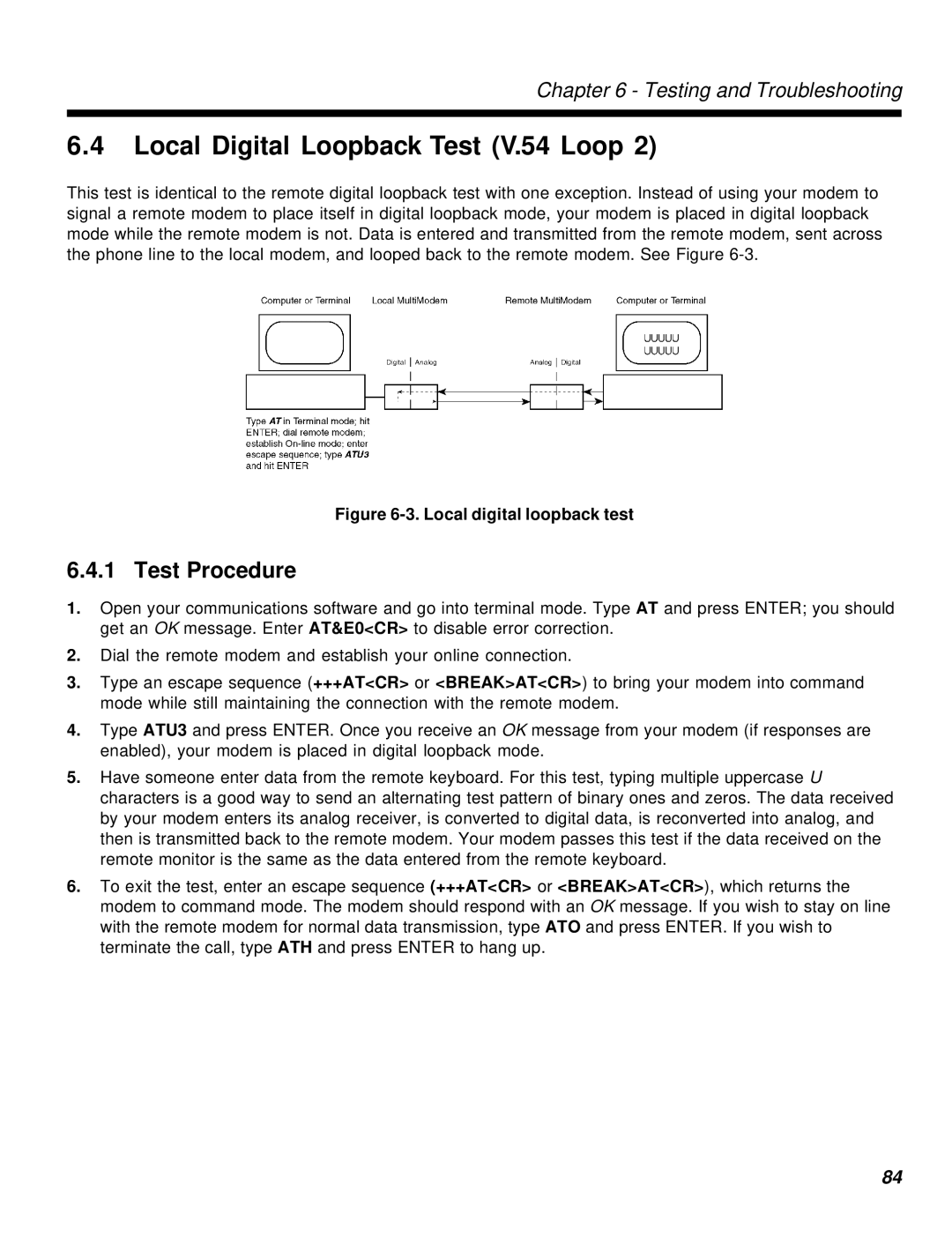
Chapter 6 - Testing and Troubleshooting
6.4Local Digital Loopback Test (V.54 Loop 2)
This test is identical to the remote digital loopback test with one exception. Instead of using your modem to signal a remote modem to place itself in digital loopback mode, your modem is placed in digital loopback mode while the remote modem is not. Data is entered and transmitted from the remote modem, sent across the phone line to the local modem, and looped back to the remote modem. See Figure
Figure 6-3. Local digital loopback test
6.4.1 Test Procedure
1.Open your communications software and go into terminal mode. Type AT and press ENTER; you should get an OK message. Enter AT&E0<CR> to disable error correction.
2.Dial the remote modem and establish your online connection.
3.Type an escape sequence (+++AT<CR> or <BREAK>AT<CR>) to bring your modem into command mode while still maintaining the connection with the remote modem.
4.Type ATU3 and press ENTER. Once you receive an OK message from your modem (if responses are enabled), your modem is placed in digital loopback mode.
5.Have someone enter data from the remote keyboard. For this test, typing multiple uppercase U characters is a good way to send an alternating test pattern of binary ones and zeros. The data received by your modem enters its analog receiver, is converted to digital data, is reconverted into analog, and then is transmitted back to the remote modem. Your modem passes this test if the data received on the remote monitor is the same as the data entered from the remote keyboard.
6.To exit the test, enter an escape sequence (+++AT<CR> or <BREAK>AT<CR>), which returns the modem to command mode. The modem should respond with an OK message. If you wish to stay on line with the remote modem for normal data transmission, type ATO and press ENTER. If you wish to terminate the call, type ATH and press ENTER to hang up.
84
